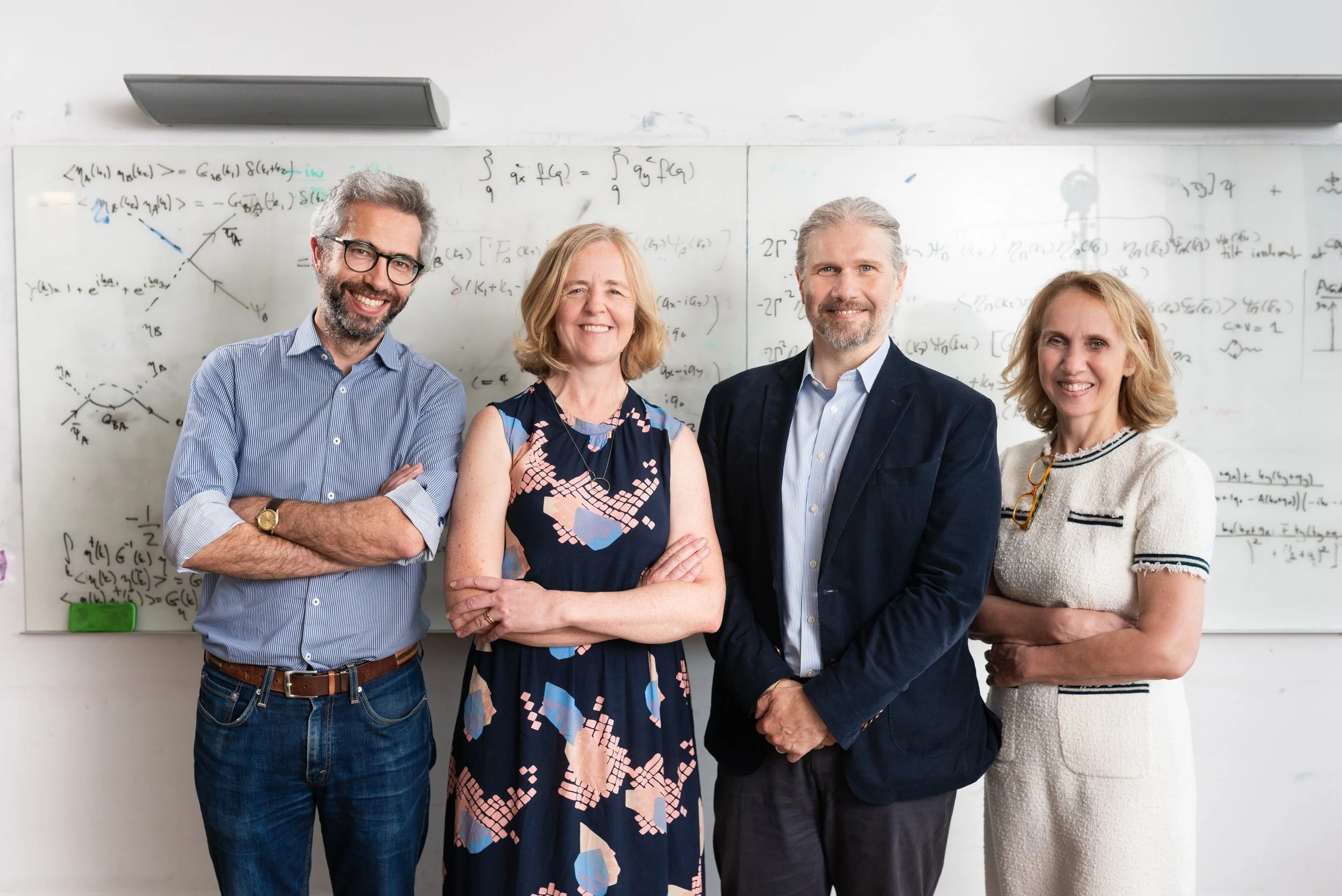New £24M Quantum Research Hub for Healthcare: Q-BIOMED
From left: Professor John Morton (London Centre for Nanotechnology at UCL), Professor Rachel McKendry (London Centre for Nanotechnology and UCL Division of Medicine), Professor Mete Atatüre (Cavendish Laboratory, Cambridge University) and Professor Eleni Nastouli (UCL Great Ormond Street Institute of Child Health and consultant virologist at UCLH). Credit: James Tye / UCL
Professor Rachel McKendry, Director of the Digital Health Hub for AMR, will be Co-Director of a major new research hub led by UCL and the University of Cambridge, aiming to harness quantum technology to improve early diagnosis and treatment of disease.
The hub aims to exploit advances in quantum sensors capable of detecting cells and molecules, potentially orders of magnitude more sensitively than traditional diagnostic tests. This includes developing quantum-enhanced blood tests to diagnose infectious diseases and cancer quickly and cheaply using portable instruments, and sensors measuring tiny changes to the magnetic fields in the brain that have the potential to detect early markers of Alzheimer’s disease before symptoms occur. Other research will include quantum-enhanced MRI scans, heart scanners and surgical and treatment interventions for early-stage and hard-to-treat cancers.
The hub covers applications across various conditions including infectious diseases and antimicrobial resistance, as well as cancer, cardiovascular disease and Alzheimer’s disease.
The Q-BIOMED hub brings together researchers from UCL and Cambridge, Oxford, Warwick, Cardiff, and Heriot-Watt universities, as well as NHS trusts, industry partners and charities. Professor Rachel McKendry, Co-Director of the new hub, from the London Centre for Nanotechnology and Division of Medicine at UCL, said: “Q-BIOMED is an exciting new quantum research hub, bringing together two areas of science in which the UK is world leading – quantum and biomedicine – and positions us at the global forefront of this exciting new field.
“Our hub aims to grow a new quantum for health innovation ecosystem in the UK, and has already shaped the UK's new Quantum Mission for Health. Our long-term vision is to accelerate the entire innovation pipeline from discovery research, to translation, adoption and implementation within the NHS and global health systems, for the benefit of patients and societal good.
“Earlier diagnosis of diseases such as cancer would unlock a paradigm shift in health, allowing for more rapid access to life-saving treatments and better health outcomes. More rapid, sensitive and accessible diagnostics tests could also help to reduce waiting lists, easing pressures on the NHS.”
The hub core research programme will be complemented by strong stakeholder engagement, a translational impact fund, a future leaders programme, and active patient and public involvement.
Read the EPSRC Quantum Hub announcement here
Read the UCL’s news story here
